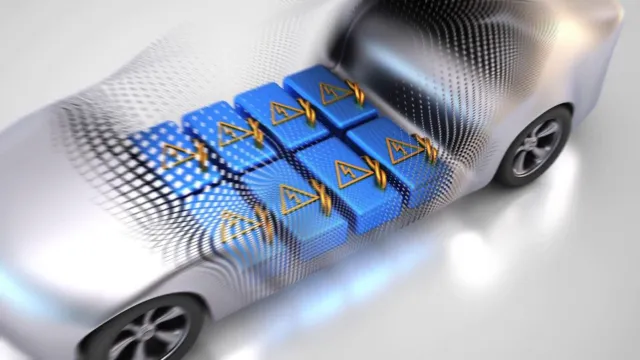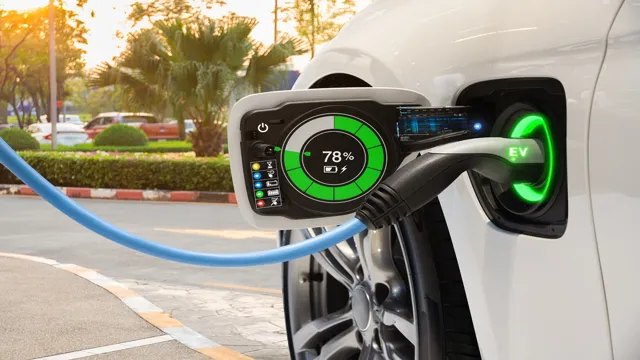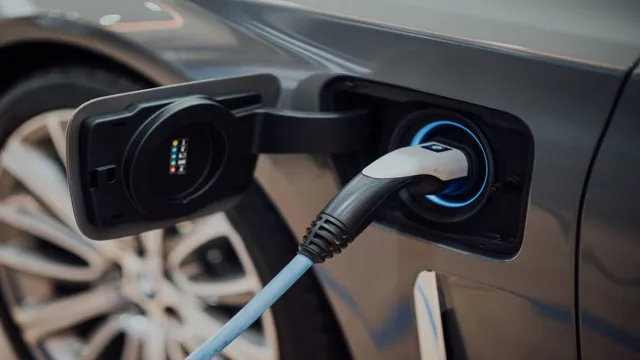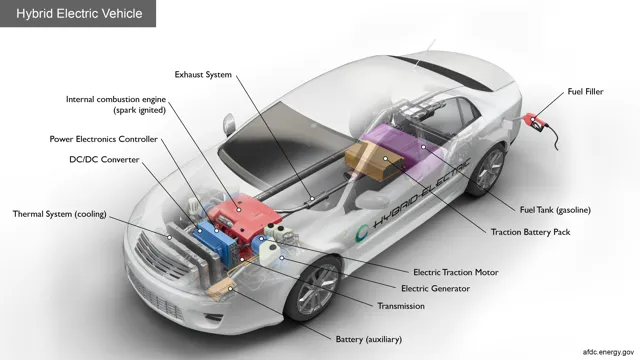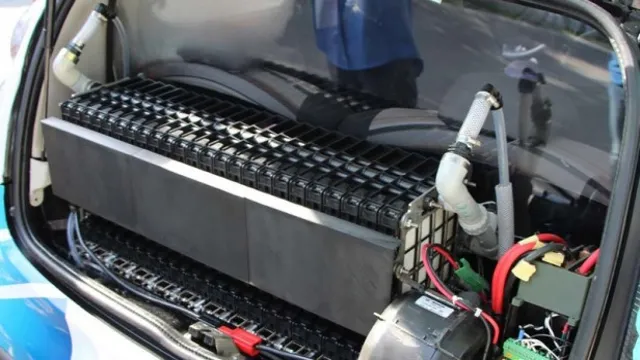Unveiling the Mystery: Do Electric Cars Run on 12 Volt Batteries?
Electric cars have become increasingly popular in recent years, and for good reason. They offer a more sustainable and environmentally-friendly way to travel, while also providing a smoother and quieter ride. However, with the rise of electric cars comes much debate around 12 volt batteries.
Many myths circulate about these batteries, causing confusion and misunderstanding among drivers. In this blog, we’ll explore the facts and myths surrounding electric cars and 12 volt batteries, so you can have a better understanding of how they work together. So, buckle up and let’s take a ride into the world of electric cars and 12 volt batteries!
Do Electric Cars Have 12 Volt Batteries?
If you’re in the market for an electric car, you might wonder if it has a 12-volt battery like traditional gasoline-powered cars. The answer is yes and no. While electric cars don’t have a starter motor like gasoline cars, they do have a 12-volt battery that’s used for auxiliary functions.
This means that electric cars use a separate high-voltage battery pack that powers the motor but still require a smaller 12-volt battery, not unlike the one in your gas-powered car, to power features like the headlights, interior lights, entertainment systems, and other accessories. So, while they don’t use it for the same primary function as gas-powered cars, electric cars do have a 12-volt battery that’s necessary for them to operate.
Understanding the Role of 12 Volt Batteries
Electric cars are gaining popularity in the modern world, but understanding their mechanics can be overwhelming. One question that comes up often is whether electric cars have 12 volt batteries. The answer is yes, electric cars do have 12 volt batteries, and their role is crucial in keeping the car’s electrical systems running smoothly.
Although the 12 volt battery in a traditional combustion engine car plays a primary role in starting the engine, the same cannot be said for electric cars. The 12 volt battery in an electric car powers the vehicle’s auxiliary functions like lights, entertainment systems, and climate control. It also helps maintain the electric car’s main battery charge by powering the relay that connects the 12 volt battery to the main battery.
Therefore, even though it may not seem as critical as the main battery in an electric car, the 12-volt battery plays an important role in keeping the vehicle operational.
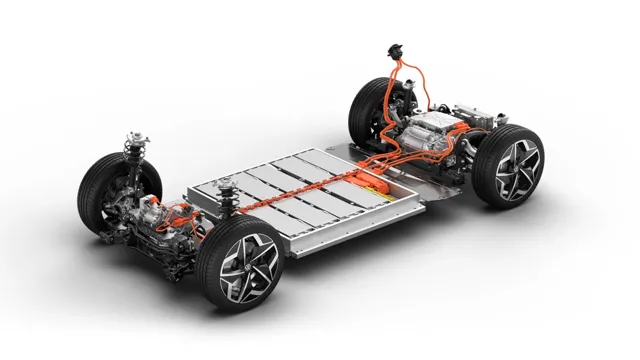
Exploring the Battery System in Electric Cars
Electric cars have become the new trend in the automobile industry with their eco-friendly benefits and cost-effectiveness. However, many people may not be aware of the battery system in electric cars and their functioning. One common question that arises is: do electric cars have 12 volt batteries? The answer to this question is both yes and no.
Electric cars have two types of batteries: the primary battery that powers the car and the 12-volt battery that powers auxiliary electronics such as lights, radio, and air conditioning. The 12-volt battery in electric cars works similarly to the one in gasoline cars, but it is smaller in size. Its main task is to maintain the charge in the car’s primary battery and ensure that the electronics work correctly.
While electric cars have both primary and 12-volt batteries, they are not interchangeable. The primary battery is the crucial component that powers the car and allows it to run, while the 12-volt battery only supports the auxiliary electronics. Therefore, it is important to understand both types of batteries and how they function in electric cars.
The Controversy Around Electric Cars & 12 Volt Batteries
One of the biggest controversies surrounding electric cars is about their 12 volt batteries. Many people ask, “Do electric cars have 12 volt batteries?” The answer is yes, they do! Although electric cars run on high voltage battery packs, they also have a 12-volt battery, just like traditional gasoline-powered vehicles. However, the 12-volt battery in electric cars is used for different purposes than in gas cars.
It’s not used to start the engine but rather to power the car’s accessories, such as the lights, radio, and air conditioning. In some electric cars, the 12-volt battery can also be used to power the car’s electric motor in the event that the main battery pack fails. Additionally, because electric cars don’t need oil changes, the 12-volt battery can last much longer than in a gas car, further reducing maintenance costs for the vehicle owner.
So, although electric cars and their 12-volt batteries continue to stir up controversy, there’s no denying that the industry is rapidly evolving and changing the way we drive.
Debunking Common Myths
Electric cars have become one of the biggest trends in the automotive industry, but there are many misconceptions when it comes to their 12 volt batteries. Many people believe that electric cars only run on their main batteries, and that the 12 volt batteries are used solely for starting the vehicle. However, this could not be farther from the truth.
The main battery in an electric car is actually used for powering the motor, while the 12 volt battery is responsible for keeping the electrical components of the vehicle running smoothly. This includes things like the radio, lights, and other accessories. While the 12 volt battery may seem insignificant, its role in the car is just as important as the main battery.
In fact, without the 12 volt battery, an electric car would be unable to function properly. So, the next time you hear someone say that the 12 volt battery in an electric car is unnecessary, remember how important it truly is.
Addressing Safety Concerns
Electric cars have been met with both excitement and caution due to concerns about safety. One common issue raised by skeptics involves the 12 volt battery used in electric vehicles. While some argue that these batteries pose a risk in the event of a collision or fire, others point out that they are no more dangerous than those found in traditional gas-powered cars.
In fact, many electric vehicle manufacturers take great care to ensure the safety of their batteries by using protective measures like firewalls and cooling systems. It’s important to remember that safety concerns are legitimate but it’s crucial to analyze them objectively and avoid being swayed by sensationalized claims. Ultimately, electric vehicles are largely safe and continue to evolve in ways that enhance their safety even further.
The Future of 12 Volt Batteries in Electric Cars
The controversy around 12-volt batteries in electric cars is a topic that has been circulating the industry for some time. While traditional gasoline-powered vehicles utilize a 12-volt battery to power auxiliary components such as lights and infotainment systems, electric cars perform a bit differently. In electric cars, the 12-volt battery acts as a backup power source in case the main high-voltage battery fails.
Despite this, some experts argue that the 12-volt battery is unnecessary and will soon be phased out altogether. While advancements in battery technology continue to grow, it remains to be seen whether or not 12-volt batteries will become obsolete in electric cars. Only time will tell if this component will stick around or be eventually phased out in favor of new and innovative technology.
Other Factors to Consider When Buying an Electric Car
Yes, electric cars do have 12-volt batteries, just like traditional gasoline-powered vehicles. However, the role of the 12-volt battery in an electric car is different than in a gas car. In an electric car, the 12-volt battery powers the auxiliary systems, such as the lights, radio, and power windows, while the main battery pack powers the vehicle’s propulsion system.
It’s important to keep in mind that the 12-volt battery in an electric car might not last as long as in a gas-powered vehicle, as it experiences more strain due to the constant powering of auxiliary systems. As with any car, it’s essential to consider all factors when purchasing an electric vehicle, including the battery’s expected lifespan, maintenance costs, and charging infrastructure in your area.
Range & Charging Time
When it comes to buying an electric car, range and charging time are two of the most important factors to consider. Range refers to how far the car can travel on a single charge, while charging time refers to how long it takes to recharge the battery. The range of an electric car can vary depending on the make and model, with some being able to travel up to 300 miles on a single charge.
Additionally, the charging time can vary from a few hours to several days, depending on the use of fast charging stations or home charging systems. Other factors to consider include the availability of charging stations in your area, the cost of electricity, and the type of charger needed for your vehicle. It’s important to do your research and carefully consider all of these factors before purchasing an electric car to ensure that it meets your needs and is a good investment for you in the long run.
Cost & Maintenance
When it comes to buying an electric car, cost and maintenance are two important factors to consider. While electric cars may have a higher upfront cost than traditional gasoline vehicles, they can save you money in the long run. This is because they require less maintenance, have lower fuel costs, and may qualify for tax credits and incentives.
Additionally, many electric cars have a longer lifespan and retain their value better than traditional cars. However, it’s important to consider the cost of purchasing and installing a home charging station, which can add up quickly. Additionally, electric car batteries may eventually need to be replaced, which can be expensive.
Overall, while there are some additional costs and maintenance considerations to keep in mind when buying an electric car, the potential cost savings and environmental benefits make them an attractive option for many drivers.
Conclusion: The Bottom Line on Electric Cars & 12 Volt Batteries
In conclusion, yes, electric cars do have 12 volt batteries. But don’t be fooled by their small size – these batteries play a crucial role in powering the car’s auxiliary systems, including the lights, infotainment system, and HVAC. And while electric cars are different from traditional gasoline-powered ones, they still rely on some of the same tried and true technologies, including the trusty 12 volt battery.
So next time you see an electric car on the road, give a nod to its humble 12 volt companion and the important role it plays in keeping the car running smoothly.”
FAQs
What is the role of a 12-volt battery in an electric car?
The 12-volt battery in an electric car powers the auxiliary systems, such as the lights and sound system.
Can you replace the 12-volt battery in an electric car yourself?
It’s generally not recommended for non-professionals to replace the 12-volt battery in an electric car. It’s best to have a professional handle it.
How long does the 12-volt battery in an electric car typically last?
The lifespan of the 12-volt battery can vary depending on usage and model, but it typically lasts between 3 to 5 years.
What happens if the 12-volt battery in an electric car dies?
If the 12-volt battery in an electric car dies, the car may not start, and various systems such as lights and the sound system may not function properly. It’s important to have it replaced promptly.
